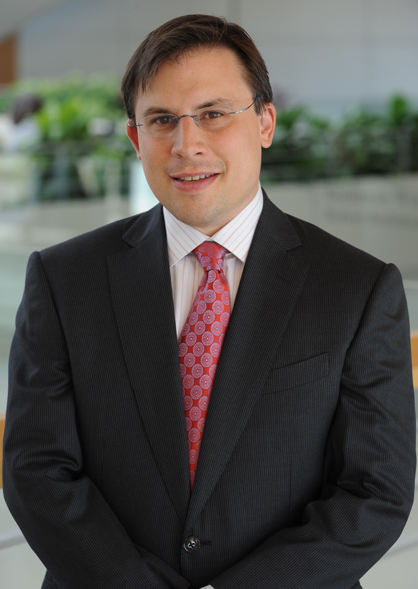2007年费雪布莱克奖得主Tobias J. Moskowitz

文件大小:未知
级别评定:
添加时间:2015-12-10 11:56:38
最后更新:2015-12-10 15:14:21
下载积分:0分 (只有会员文件下载时才需要相应积分验证)
总浏览:
总下载:0
发布人:george15135
- 如果您发现该资源不能下载,请在本站论坛提出,管理员会及时处理。
- 未经本站明确许可,任何网站不得非法盗链及抄袭本站资源。
- 本站资源均为网友提供交流,仅供教学、研究使用,请下载后24小时内自行删除。
资源简介
Tobias J. Moskowitz芝加哥大学商学院主页:
http://faculty.chicagobooth.edu/tobias.moskowitz/index.html
Tobias Jacob "Toby" Moskowitz (born February 3, 1971) is an American financial economist and a professor at the University of Chicago Booth School of Business. He was the winner of the 2007 American Finance Association (AFA) Fischer Black Prize, awarded to a leading finance scholar under the age of 40.
Background[edit]
Moskowitz was born in 1971 in West Lafayette, Indiana, where his father was a professor of management at Purdue University. Moskowitz graduated from West Lafayette Junior-Senior High School in 1989, and then attended Purdue where he earned a B.S. in industrial management and industrial engineering (with distinction) in 1993, and a M.S. in management in 1994. He received a Ph.D. in finance from the University of California, Los Angeles Anderson School of Management in 1998.
Professional career[edit]
Moskowitz has been a faculty member at Booth since 1998. Moskowitz has published several award winning research papers and was promoted to full professor in 2005. He is currently the Professor of Finance and Neubauer Family Faculty Fellow at the Booth School of Business.[1] In 2007, he was the second winner of the Fischer Black prize.[2]
In the words of the AFA, Moskowitz was honored for "ingenious and careful use of newly available data to address fundamental questions in finance." In Moskowitz' own words, "I try to measure things that are not easy to measure."[3]Moskowitz was praised by the AFA as follows: "Professor Moskowitz accomplishes the difficult task of testing the theory while having access to much less information than is available to market participants."[4] According to the University of Chicago press release, "Moskowitz has explored topics as diverse as momentum in stock returns, local bias in investment portfolio choice, and the social effects of bank mergers. He also looked at the return to private business ownership, the trading and financing of commercial real estate, and the political economy of financial regulation."[5]
Moskowitz won the 2000 Smith-Breeden Prize for his paper "Home Bias at Home: Local Equity Preference in Domestic Portfolios" (with Joshua Coval),[6] published in the Journal of Finance and the 2005 Brattle Prize second place for "Testing Agency Theory with Entrepreneur Effort and Wealth" (with Marianne P. Bitler and Annette Vissing-Jørgensen),[7] published in the Journal of Finance. He also won 2004 and 2005 Michael Brennan Award prizes for papers published in the Review of Financial Studies.[5] His 2004 paper, "Informal Financial Networks: Theory and Evidence" (with Mark Garmaise), placed first, and his 2005 paper, "Confronting Information Asymmetries: Evidence from Real Estate Markets" (with Garmaise), was runner-up.[8]
In addition to his academic work, Moskowitz has served as a consultant to AQR Capital Management.
In 2011, Moskowitz and co-author L. Jon Wertheim published Scorecasting, a book that uses statistical and other empirical research results to analyze conventional sports wisdom.
https://en.wikipedia.org/wiki/Toby_Moskowitz
————————
Tobias J. Moskowitz博士毕业于UCLA商学院。
February 20, 2007
Toby Moskowitz ('98) Receives 2007 Fischer Black Prize from American Finance Association
UCLA Anderson doctoral grad recognized as top, young finance scholar
LOS ANGELES – UCLA Anderson graduate Tobias (Toby) Moskowitz (’98) has received the 2007 Fischer Black Prize from the American Finance Association honoring the top finance scholar under age 40. Moskowitz, 35, received the award January 6 at the annual meeting of the American Finance Association. In presenting the award, the American Finance Association cited his, “ingenious and careful use of newly available data to address fundamental questions in finance.”
 The Fischer Black Prize honors the memory of Fischer Black, formerly a general partner at Goldman Sachs and a professor at the Chicago Graduate School of Business and the Massachusetts Institute of Technology, whose seminal research included the development (with Myron Scholes) of the widely applied Black-Scholes Option Pricing Model. The prize is awarded for a body of work that exemplifies the Fischer Black hallmark of original research that is relevant to finance practice. The biennial prize was first awarded in 2003. Moskowitz is only the second recipient since no winner was named in 2005.
The Fischer Black Prize honors the memory of Fischer Black, formerly a general partner at Goldman Sachs and a professor at the Chicago Graduate School of Business and the Massachusetts Institute of Technology, whose seminal research included the development (with Myron Scholes) of the widely applied Black-Scholes Option Pricing Model. The prize is awarded for a body of work that exemplifies the Fischer Black hallmark of original research that is relevant to finance practice. The biennial prize was first awarded in 2003. Moskowitz is only the second recipient since no winner was named in 2005.
Moskowitz completed his doctorate at UCLA Anderson in 1998 and joined the University of Chicago Graduate School of Business as an assistant professor of finance. He became a professor in 2006.
Finance professor Richard Roll, who served on Toby’s dissertation committee, remembers him as hard working, innovative and particularly strong in empirical research. “This is one of the top prizes in finance,” says Roll, “and it’s a big honor for him to win it.”
UCLA Anderson finance professor Mark Grinblatt was chairman of Moskowitz’ dissertation committee and has co-authored two papers with him. “He had a wonderful attitude,” says Grinblatt. “He was unique in that he always sought criticism for his work. It’s no surprise he’s been a tremendous success. He’s got a lot of papers and most of them appear in top journals.”
In 2004, Moskowitz and UCLA Anderson assistant professor Mark Garmaise received the Michael Brennan Prize for the year’s best paper in the Review of Financial Studies. See the link below to read this paper. The following year, they were runners-up for the same award. Garmaise notes that, "Toby has a wonderfully creative mind and pursues ideas for their intrinsic economic interest, rather than worrying about how they fit in to the existing academic literature. He's a delight to work with as a co-author."
“I try to measure things that are not easy to measure,” says Moskowitz who explains that he often uses proxies to explain financial phenomena in the absence of direct information. “Suppose you have an investor who has private information about a company,” he says. “As an outsider looking at the historical data, I have no idea what that private information is. I can’t tell if that person has good or bad information. I can only look at things like performance.
“But performance is very noisy. If there is private information, where is it most likely to emerge? Well, it would be in things that are located close to the manager. For instance, take a money manager in Los Angeles and look at the stocks that are closest in proximity.” Moskowitz found that the geographic proximity of an investor was, indeed, associated with improved stock performance.
“We used something that was measurable, geographic proximity to investments, to measure the likelihood that you would see private information or informed trading emerge there. And then we were able to identify and test it. My research can be characterized by lots of those types of experiments.
“I’ve done similar things to study lending,” he says. “When a bank considers making a loan, there’s information about the quality of the borrower that researchers don’t get to see. But I use things like zoning regulations and tax assessment practices, as well as geographic location, to identify the direction that information is flowing and measure its effects on loan contracts.”
Moskowitz notes that the Internet provides valuable sources of data for his research. “Access to data and the creation of new data sets has become much easier than it was even a decade ago,” he says. “For someone like me who does empirical work, this is a great advantage. At the same time, it imposes some costs because data on the Internet is often in different formats. So there’s now become this art of putting unique data sets together.”
Moskowitz credits Mark Grinblatt, his advisor at UCLA Anderson, with helping him develop a critical eye toward his work. “You always want to be your own worst enemy,” he says. “What you want to do is come up with an idea - and a way to test it. Then, if you get a result that confirms your hypothesis, the real work begins. You spend the next couple months thinking about how you can make this go away. Just absolutely be your own worst critic. If you’ve done your due diligence and made sure that the result is robust, and that it means what you think it means, then you can be pretty confident. This is the same speech I give my students now.”
Does the Fischer Black Prize bring added pressure? “Well,” he says, “I’m working on some things and there’s a little bit of, ‘Boy, I hope this is good.’ But that's not new. I’ve always wanted to be the best that I can be. I don’t want to write anything really bad where people say, ‘Oh, he’s checked out ... They made a mistake here.’ On the other hand, I don’t worry about that too much. I was elated to get the prize, and flattered, and I figure if I just continue doing what I always did, that should be pretty good.”
Read “Informal Financial Networks: Theory and evidence,” by Mark Garmaise & Tobias Moskowitz; The Review of Financial Studies; Winter 2003. (Winner of the 2004 Barclays Global Investors (BGI) Michael Brennan Award as best paper in the Review of Financial Studies.)
About UCLA Anderson School of Management
UCLA Anderson School of Management, established in 1935, is regarded among the very best business schools in the world. UCLA Anderson faculty are ranked #1 in "intellectual capital" by BusinessWeek and are renowned for their teaching excellence and research in advancing management thinking. Each year, UCLA Anderson provides management education to more than 1,600 students enrolled in MBA, Executive MBA, Fully-Employed MBA and doctoral programs, and to more than 2,000 professional managers through executive education programs. Combining highly selective admissions, varied and innovative learning programs, and a world-wide network of 35,000 alumni, UCLA Anderson develops and prepares global leaders.
Contact Information
Media Relations, (310) 206-7707, media.relations@anderson.ucla.edu
